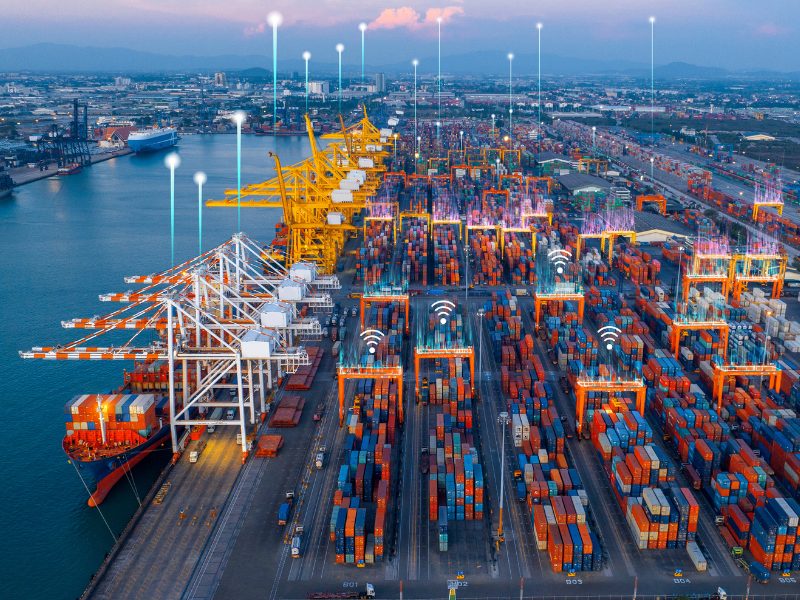As new tariffs pressure international trade, the Buy-Sell service is gaining ground as a smart alternative to maintain profitability without additional tax or logistics burdens.
Under Donald Trump’s administration, the United States reignited protectionist measures to tighten its economic relations with the world. Dubbed “Liberation Day” by the White House, this turning point marked the introduction of new tariffs on foreign products, a crackdown on tech imports, and a fast-tracked push to bring manufacturing back home.
The response was swift. China and the European Union hit back with mirror policies, further escalating global tensions. As a result, international supply chains have become entangled in political pressures, rising costs, and increased operational uncertainty.
The impact on businesses has been immediate. Companies with cross-border operations—especially in industries like manufacturing and technology—now face sudden cost hikes, disrupted supply routes, and heightened risks of supply chain interruptions. In this scenario, resilience is an urgent operational need.
While relocating plants or switching suppliers isn’t an overnight solution, some companies have turned to strategic logistics as a lifeline to navigate this new reality.
Strategic Logistics: Your Shield Against Tariff Barriers
Among the fastest-growing alternatives, Aerodoc’s Buy-Sell service has surged as an effective solution to overcome new trade barriers. It allows companies to operate in high-tariff markets without needing a legal presence. As the official importer and exporter, Aerodoc takes ownership of the goods and manages the entire process, from purchase to local distribution. As your Importer of Record (IOR) service provider, Aerodoc handles all compliance and legal requirements, enabling you to expand globally with ease.
Germán Muller, CEO of Aerodoc, explains: “The key advantage of our Buy-Sell service is that manufacturers and distributors can deliver products locally without needing a legal entity in the customer’s country. We handle the imports, manage deliveries, issue local invoices in local currency—including logistics services and taxes—and then transfer the FOB value back to the manufacturer or distributor.”

This commercial intermediary model relieves suppliers from dealing with local tax registrations, import duties, or customs clearance in destination markets. Aerodoc takes care of those complexities, allowing sellers to stay focused on their core business while ensuring that products reach their destination, are invoiced, and payments are secured under stable and predictable conditions.
Cost Reduction and Regulatory Compliance in One Strategy
Buy-Sell service also delivers considerable cost savings compared to traditional distribution schemes. When manufacturers or regional distributors rely on local partners, competitiveness often suffers due to high commissions and steep profit margins demanded by intermediaries. By partnering with a single global logistics operator, companies can improve processes and access volume-based discounts—savings that can ultimately be passed on to the end customer.
Aerodoc acts as the sole point of contact throughout the entire commercial cycle. By consolidating all logistics needs with a single provider, companies benefit from a one-stop-shop logistics solution that simplifies coordination and reduces risk. This simplifies operations and provides tighter control over costs, helping to offset some of the financial impact caused by increased tariffs during trade wars.
Another key advantage is tax optimization. Since Aerodoc issues local invoices, taxes and tariffs are already included and managed directly by the company, relieving the supplier of any fiscal responsibilities in the destination country. This approach reduces the risk of penalties or unexpected expenses caused by administrative errors in constantly changing regulatory environments.
Smarter Routes, Lower Tariffs
Aerodoc handles transportation and optimizes each operation by identifying the most efficient and cost-effective trade routes. Its team actively looks for trade agreements and preferential treaties that can help reduce tariff impacts. For instance, if a treaty exists between the country of origin and an intermediary country, Aerodoc can import the goods there and re-export them to the final destination, lowering tariff costs. Aerodoc’s global freight forwarding solutions ensure your cargo moves along cost-effective routes and that every step from origin to last-mile delivery is expertly managed.

This fiscal and logistics engineering level requires deep expertise in international regulations and a well-established global network. For many companies, building that kind of infrastructure is simply not feasible. That’s why outsourcing this key function to an experienced partner like Aerodoc has become a strategic decision for staying competitive in today’s complex global trade environment.
Flexibility Is the Best Response to Uncertainty
The new global trade environment offers little stability. Tariffs can appear, rise, or disappear overnight based on unilateral decisions. Companies looking to maintain international operations without becoming entangled in a web of costly legal structures and intermediaries must stay agile and ready to adapt.
The Buy-Sell service has become a proven solution to soften the blow. It reduces paperwork, helps avoid penalties, simplifies logistics, and—most importantly—allows companies to protect healthy profit margins without sacrificing their international presence.
Take Action with Strategy
To learn in detail how to protect your company’s profitability in high-tariff scenarios, contact our team of experts to learn more about Buy Sell service.
Q&A
- How have tariffs impacted international supply chains? Tariffs have increased costs, disrupted supply chains, and introduced political risks, especially for industries like manufacturing and technology, causing uncertainty and delays.
- What solution does Aerodoc’s Buy-Sell service offer to companies dealing with high tariffs? Aerodoc’s Buy-Sell service helps companies operate in high-tariff markets by handling imports, logistics, and compliance, avoiding the need for a local legal presence.
- How does the buy-sell service help reduce operational costs? By eliminating intermediaries and leveraging volume-based discounts, Aerodoc reduces operational costs and improves competitiveness without additional tax or logistics burdens.
- How does Aerodoc manage tariff barriers with smarter logistics routes? Aerodoc identifies cost-effective trade routes using trade agreements and re-exports through intermediary countries to minimize tariff impact and ensure efficient delivery.
- Why is flexibility necessary in today’s global trade environment? Flexibility allows businesses to adapt quickly to changing tariffs, simplify logistics and protect profitability by reducing reliance on rigid legal structures or intermediaries.




